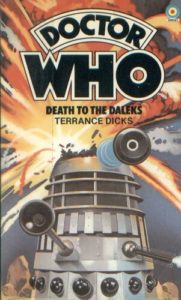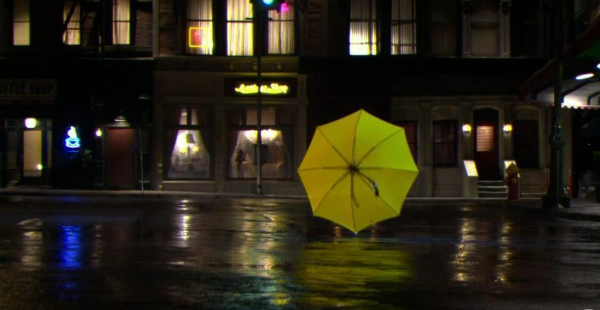The streaming service Britbox just added a shovelful of more British TV dramas to its service and one of them is Cracker by Jimmy McGovern. I saw that when it originally aired on September 27, 1993 and now I saw it again on Wednesday. That’s 26 years, 10 months and 30 days, but throughout that time I have remembered and admired one scene in precise detail.
Admire is a funny word. Feels a bit clinical. As if I were saying I could appreciate its technical merits, or something, but otherwise it left me cold. No. Cracker is a crime series with the ability to make me frightened for the victims in it. No high body count, no meaningless deaths – at least not in the sense of just being done for a plot twist; plenty of times the deaths are as meaningless as ones in real life.
And actually I do feel as if I’m going to reduce the show by focusing on what I want to talk to you about. It is the smallest moment in an exceptionally well written, commanding, engrossing, provoking drama.
The lead character, Fitz (Robbie Coltrane), sees a news report on the TV. That’s it.
Swap this show for any other police series, even ones I like, and there is a fair to total chance that this scene would play out in exactly the same way. The hero catches a news bulletin just as it happens to mention what he, she or we need to know for the drama. There’ll be a helpful photograph, some exposition that would never really be said that way by any journalist, and the hero would then unerringly know the precise moment to switch off the TV.
In the first episode of Cracker, The Mad Woman in the Attic Part 1, McGovern does have a news bulletin like this. It has a photograph of a woman who’s been murdered, it has a news presenter presenting news. What it doesn’t have, what Fitz doesn’t have, is the remote control for the TV set.
So we see him noticing the photo on the TV news, then scrabbling to find the remote to turn the sound up, and finally crossing to the set to find the controls there. And he succeeds, he gets to turn up the volume, but he’s too late.
He’s too late to find out anything and it is perfect. I’ve remembered that moment for three decades.
It’s perfect in part because we already know she’s been killed, we know a huge amount. We don’t yet know what his connection is, but there is no information that news bulletin could possibly give us that we either didn’t already have or couldn’t see from his frantic searching.
It’s also perfect because it’s new. That may sound strange to say when it is 9,830 days old, but it was new then and it is new now. A very familiar situation is completely reversed and providing the same information in a totally new way.
In a somewhat smaller way, I’m minded of when I worked on the Radio Times website. Back then there were sub editors, subs who checked facts, smoothed out grammar issues and really a dozen or more different things that meant articles were as good as they possibly could be.
Except sometimes I’d find a sentence I’d really carefully fashioned would come out as a cliché. I did ask, I did protest, but I was told that it was necessary because people like clichés. You can tell me that until the cows come home in freezer bags, I told them, it isn’t true.
Look what I did there with the freezer bags. I’m not saying it was great writing or even noticeable, but you understood it as completely as if it were the original cliché, and it wasn’t. It was the same thing but different and maybe this is just me, but that’s worth the world.
No, wait, it can’t just be me because you’re nodding and, besides, there is even a term for it. When you write a sentence that is a cliché or, more commonly is just a familiar phrase, you can recast the sentence. Audition different words and hire them if they’re right for the job. I’ll never turn to a thesaurus, but I will spend as long as it takes to find a different way of saying something.
I just realised this week that maybe it comes from that Cracker scene. Seeing how you can deliver the same information in even a slightly different way, it’s stuck with me.

